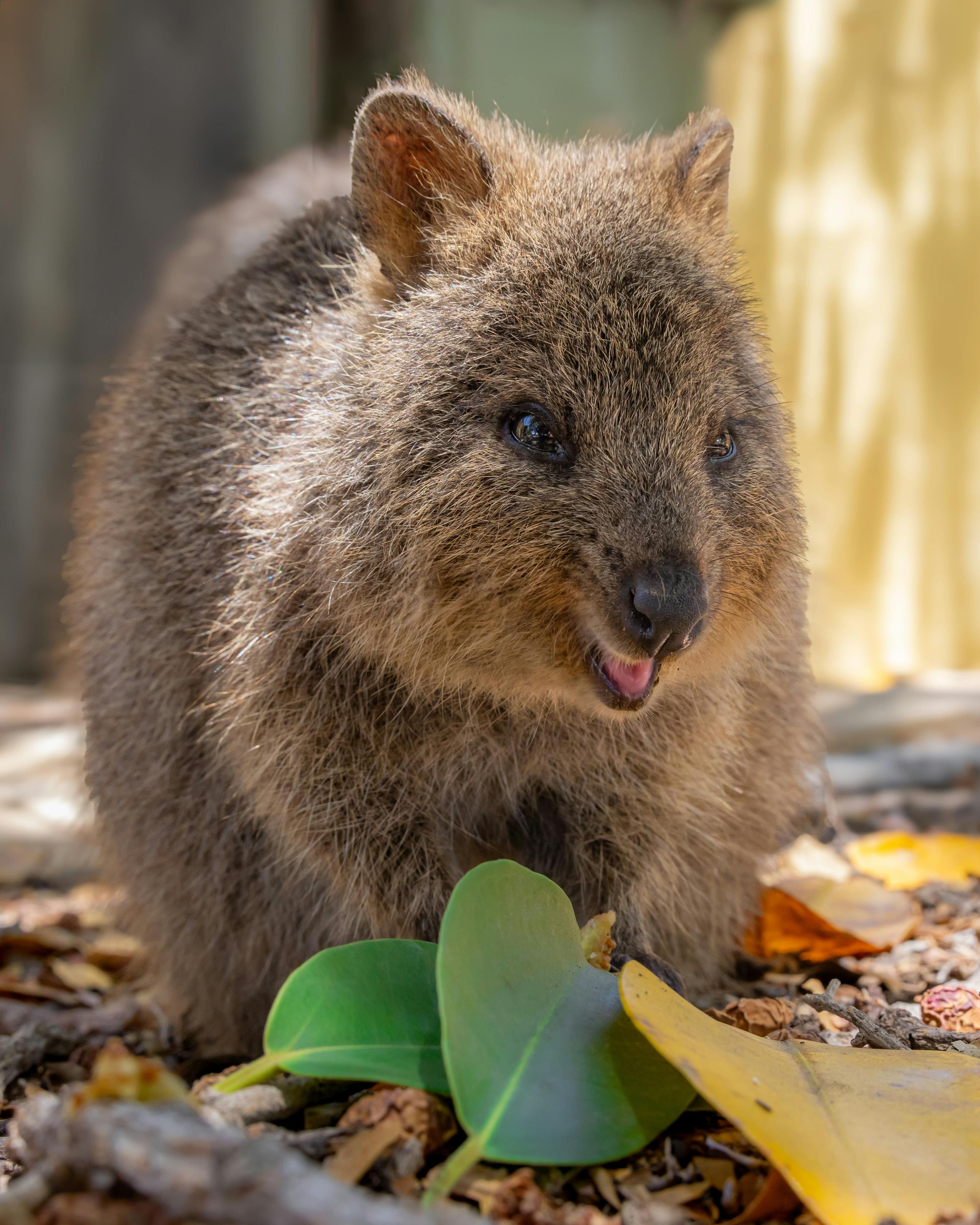Rediscovering the Australian Quokka: The World’s Happiest Marsupial
Meet the Quokka, a small marsupial native to Australia, popularly known for its irresistibly charming smile. This rare creature’s unique characteristics and survival adaptations have earned it a spot in the global spotlight. This article delves into the fascinating world of Quokkas, their history, current status, and the efforts in place to protect them.

Origins and Historical Significance of the Quokka
Quokkas belong to the marsupial family, which includes more recognized species like kangaroos and wallabies. They are primarily found on Rottnest Island, near the Western Australian coast. Historically, these creatures have been a significant part of Aboriginal culture, often featured in dreamtime stories and traditional dances. However, with European settlement in the late 17th century, Quokka populations began to decline due to new predators and habitat loss.
Quokkas in the Modern World: The Smiling Star of Social Media
Quokkas have recently become internet sensations, thanks to their seemingly permanent smile. Their cute, photogenic appearance has attracted tourists, celebrities, and social media influencers, earning them the title of “The World’s Happiest Animal.” This has driven an increase in eco-tourism to Rottnest Island, providing a much-needed boost to local economies.
The Market Impact of Quokka Popularity
As Quokkas continue to charm the world, a burgeoning market for Quokka-related merchandise has emerged. From plush toys to printed t-shirts, the estimated price range for Quokka products varies from $10 to $50. This newfound fame has also led to an increase in donations to conservation efforts, proving that Quokka’s market impact extends beyond just merchandise.
The Challenges and Conservation Efforts for Quokkas
Despite their rising popularity, Quokkas face significant threats. Their limited habitat makes them vulnerable to climate change, and human interaction often results in harmful feeding practices. Conservation efforts, however, are underway. Organizations such as the Rottnest Island Authority and World Wildlife Fund work towards preserving their habitat and educating the public about responsible interaction.
The Quokka’s Place in a Changing World
The Quokka’s story is one of resilience and adaptability. As they continue to navigate the modern world, their survival depends on our awareness and commitment to their conservation. While their adorable smiles may have made them internet celebrities, it’s their unique survival story that truly makes them remarkable.




